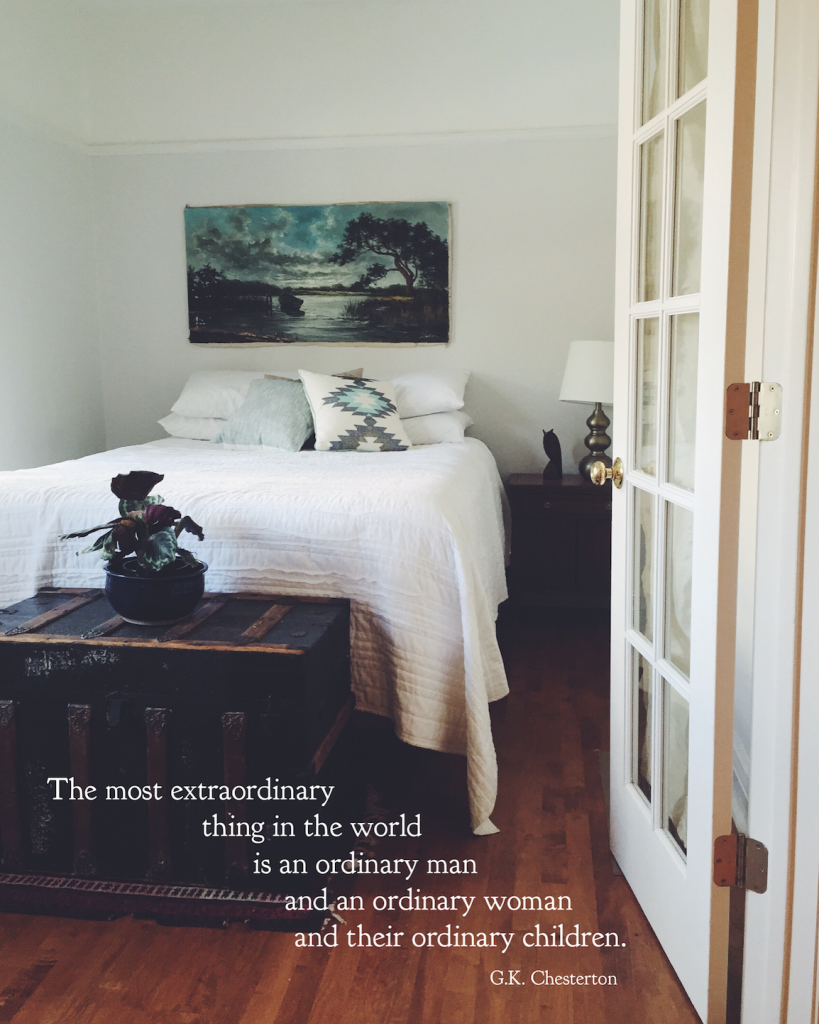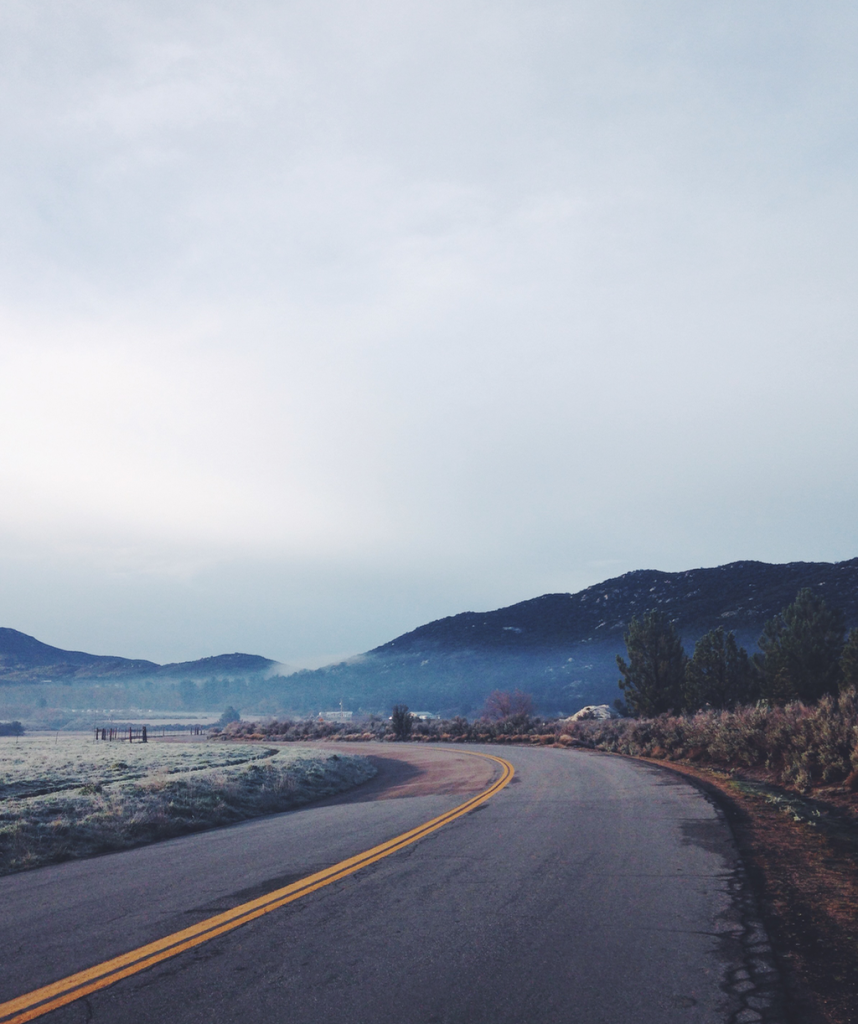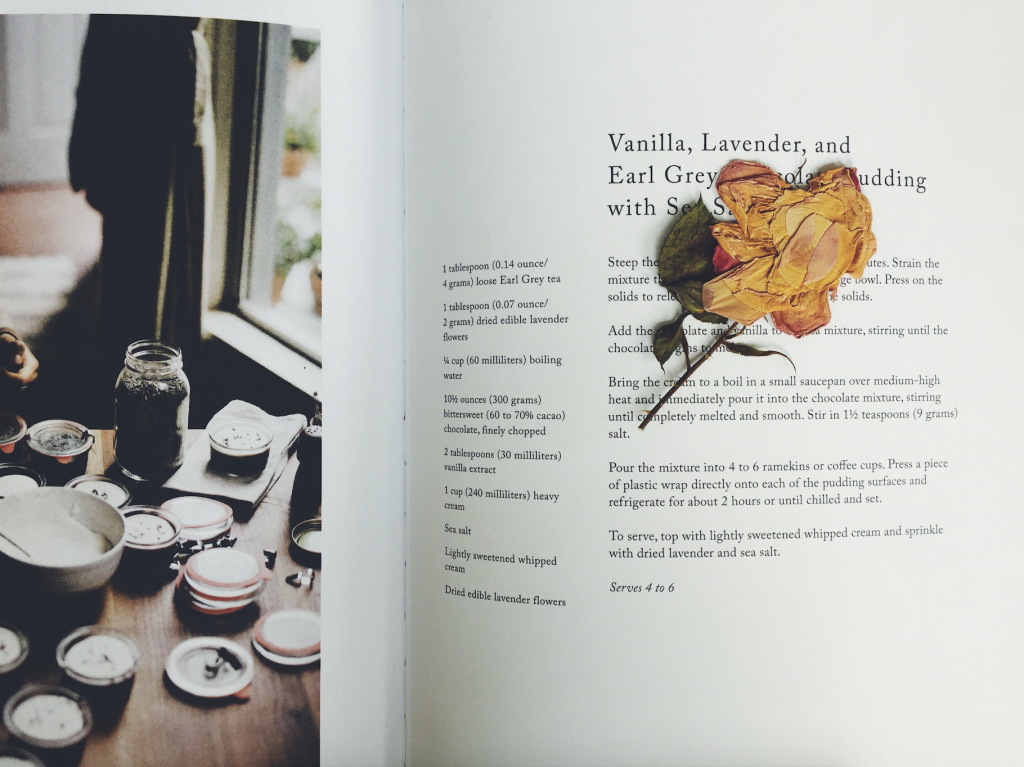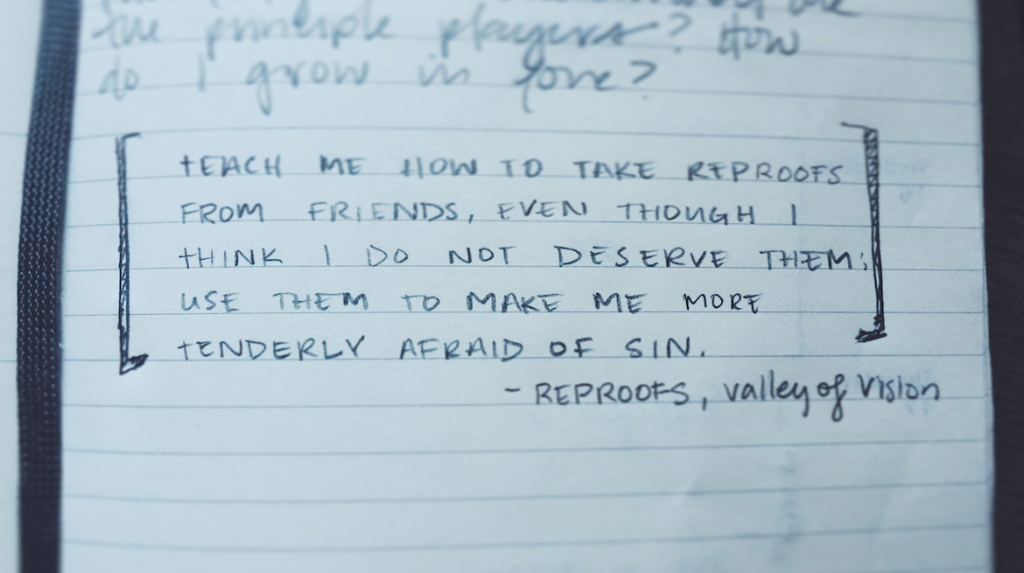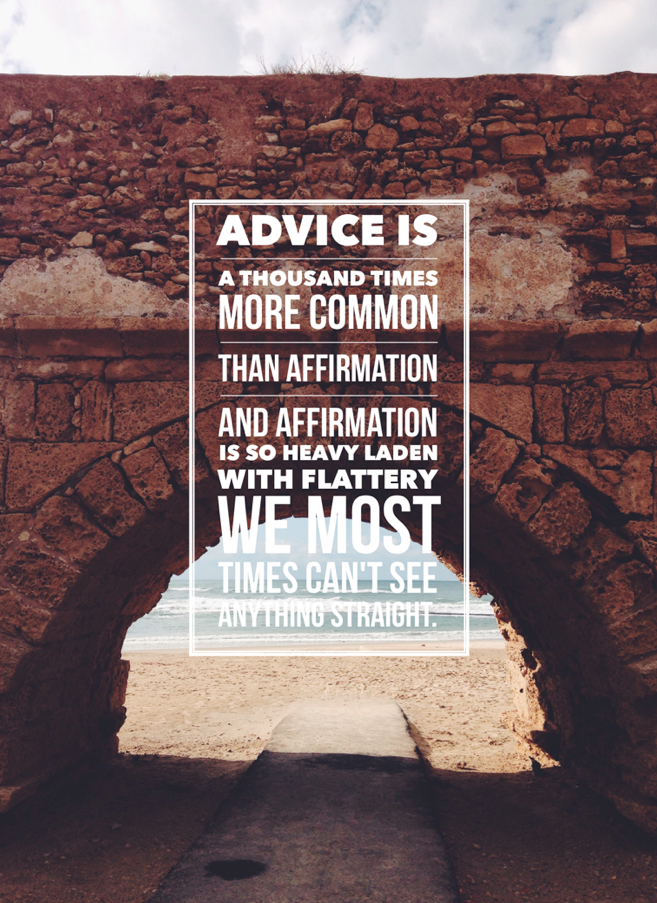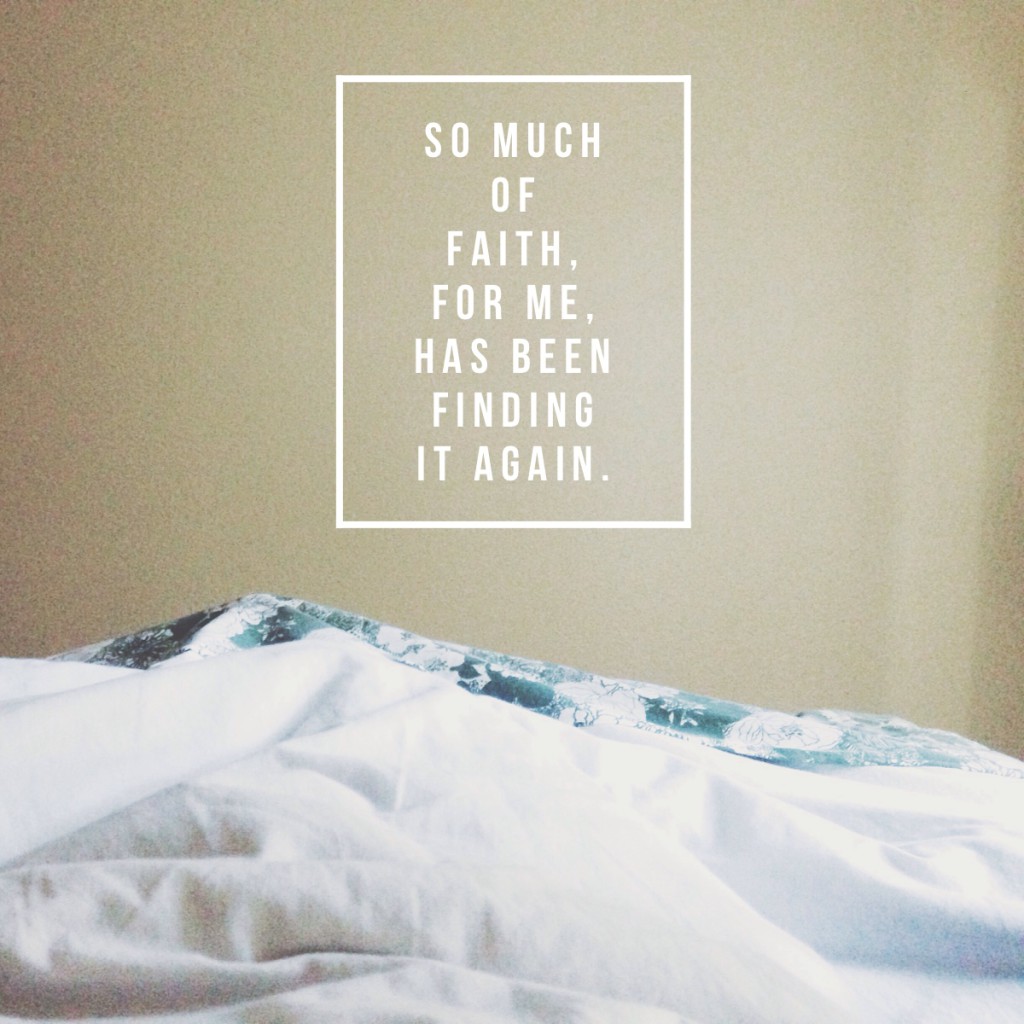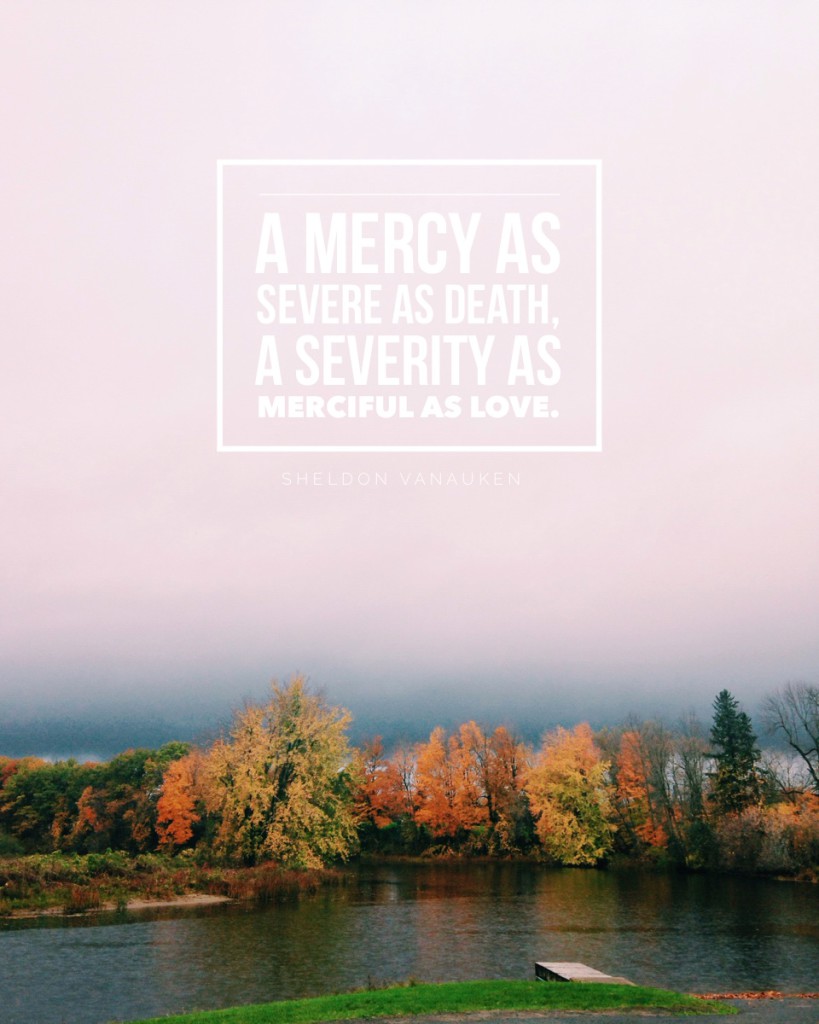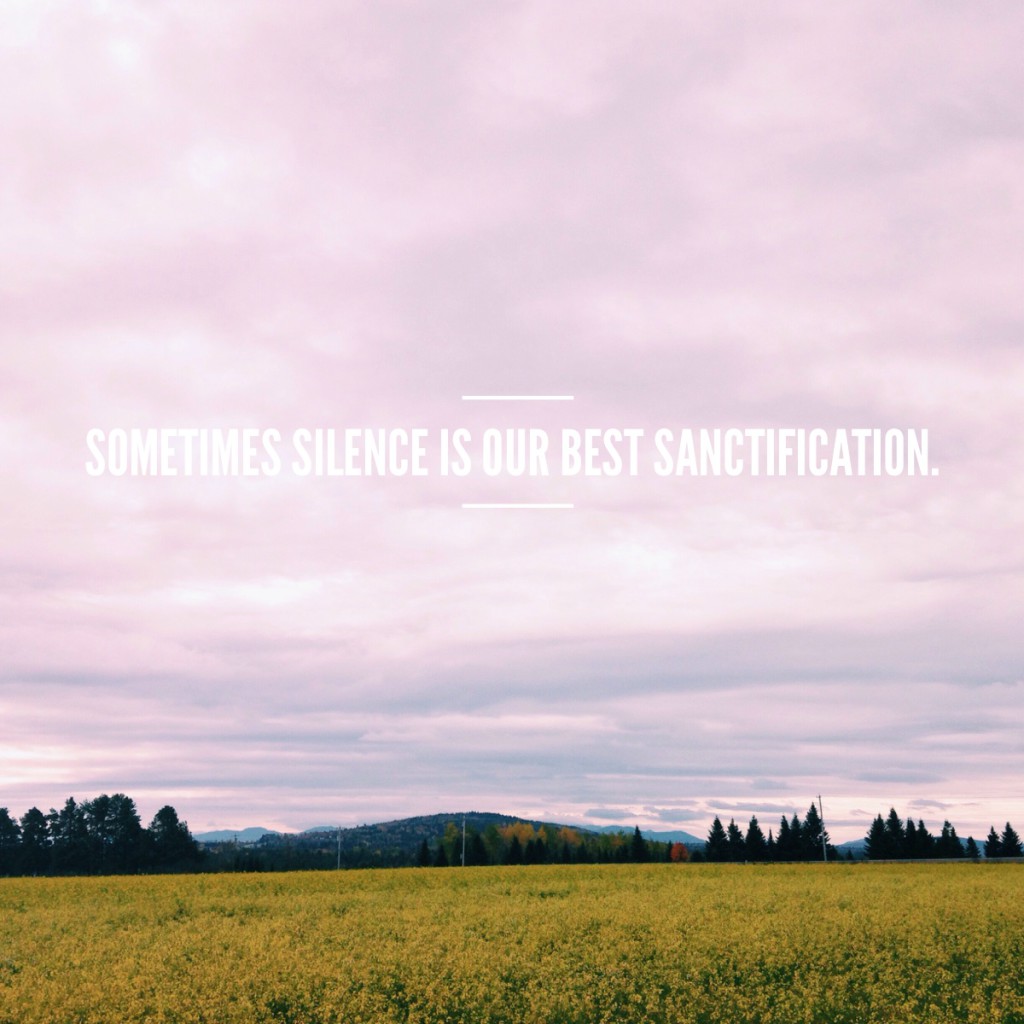Two weeks ago I sat on the couch in a therapist's office. The couch was the micro-fiber kind where the color changes depending on which way you've run your hand or where you're sitting. From my vantage point it was light grey.
I was there because I witnessed the shooting—and nobody comes out of that unscathed. But ten minutes into my verbal dump (She'd called it an "Intake Meeting," which is just an official way of saying, "Tell me all your junk.") the shooting was at the very bottom of a very long list of very hard things this year.
"It sounds like to me," she said, "you're in survival mode and you have a lot of grieving to do."
It was a statement, but there was an inflection at the end making it a question. And my shoulders fell. I ran my hand along the couch, it was dark grey now.
I mentally ticked down the list of things to grieve this year and she was right. Moving away from friends, our church, our community, losing the newness of an unknown baby, Nate losing his job, my job being more complicated than I could have imagined: yes, we are grieving and surviving each day feels like a win if we can do it.
. . .
It seems to me we Christians are very much about the testimony of "have suffered" or the theology of "we all will suffer," but very few of us want to talk about the suffering in the middle of it. We pep-talk our friends by telling them All The Good Things They Have to be Thankful For! We use exclamation points and all caps, because, yes, God is good, this is true. But it is also true that God, in his goodness, does hard things. The big news is good, but the small news is bad, and the small news makes better press.
This year has been arguably the hardest yet. The gift of a wedding came smack in the middle of it, timely and gratefully. But it does not change the bookends of January, February, and March, or the last six months. There are some days I feel like I can't breathe. That's not an excuse, but it is a reason.
I've disappointed a lot of people this year, fallen short of their expectations, not been able to enter into their sufferings, rejoicings, or difficulties in ways I wanted to. I've faced my humanity in a way I never have before: my inability to meet with every person, respond to every email or text, think through every situation, or be healthy, happy, and hearty through hard things. I remember a quote from I Capture the Castle, "Wakings are the worst times—almost before my eyes are open a great weight seems to roll on my heart." That great weight rolls on my heart every day without fail.
I'm not asking for sympathy or forgiveness—though I'd love both. But writing all this out is an attempt, small as it is, to ask if you're a praying person, would you pray for our 2016? God isn't limited to New Years and Old Ones, but I suppose he likes a clean slate as much as anyone—seeing as he started with the first one.
. . .
In 2016, I hope:
To write about my marriage. To actually live and write into the depths, goodness, hardness, and beauty of it, without fear for how it will be received. I have struggled to write about marriage because of how my unmarried readers long for it and how my married readers compare theirs to it. The beauty of writing vulnerably is everyone identifies. The mess of writing vulnerably is everyone compares.
To mourn the loss of some really beautiful things the Lord gave and then took away. A solid community, a safe neighborhood, a healthy church, a baby, singleness, time/energy to write, financial independence, Nate's job, confidence about where we'll be living or where Nate will be working in the next year, confidence about anything, really.
To be okay with not being okay. To not submit my fears, frustrations, sadness, limitations, and difficulties to a job description or a perception of what being a good Christian is or what people perceive from reading Sayable. I am not a good Christian, only a broken one.
To prepare more people with the reality that I will disappoint them. I am not the Christ. Nate and I talked this morning about nine relationships in my life in the past three years where I failed to prepare them for my humanity and they each carry the disappointment still. I want to learn to not over-promise and under-deliver—because no matter how hard I try, I will always under-deliver. I never pretended to be perfect, and have tried my best to show that I'm not, but I want to say it more in the same breath that I point to the One Who Is.
To remember God has written our story before the foundation of the earth. He knows it intimately, the losses and the gains, the fears and failures, the joys and pains. We may skip over all those small moments, thinking they are meaningless or there's no time, but He ordains each and every one for His glory and our sanctification and joy.
No matter how blank the slate of 2016 seems to be, He has already filled it and knows the ten-thousand moments within it.

 Jesus,
You never promised the easy road, I know this. Your word says you didn't even have a place to lay your head at night.
Jesus,
You never promised the easy road, I know this. Your word says you didn't even have a place to lay your head at night.
